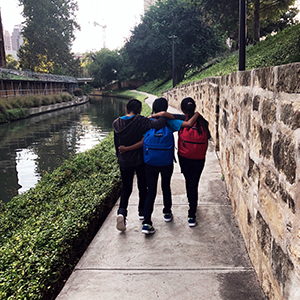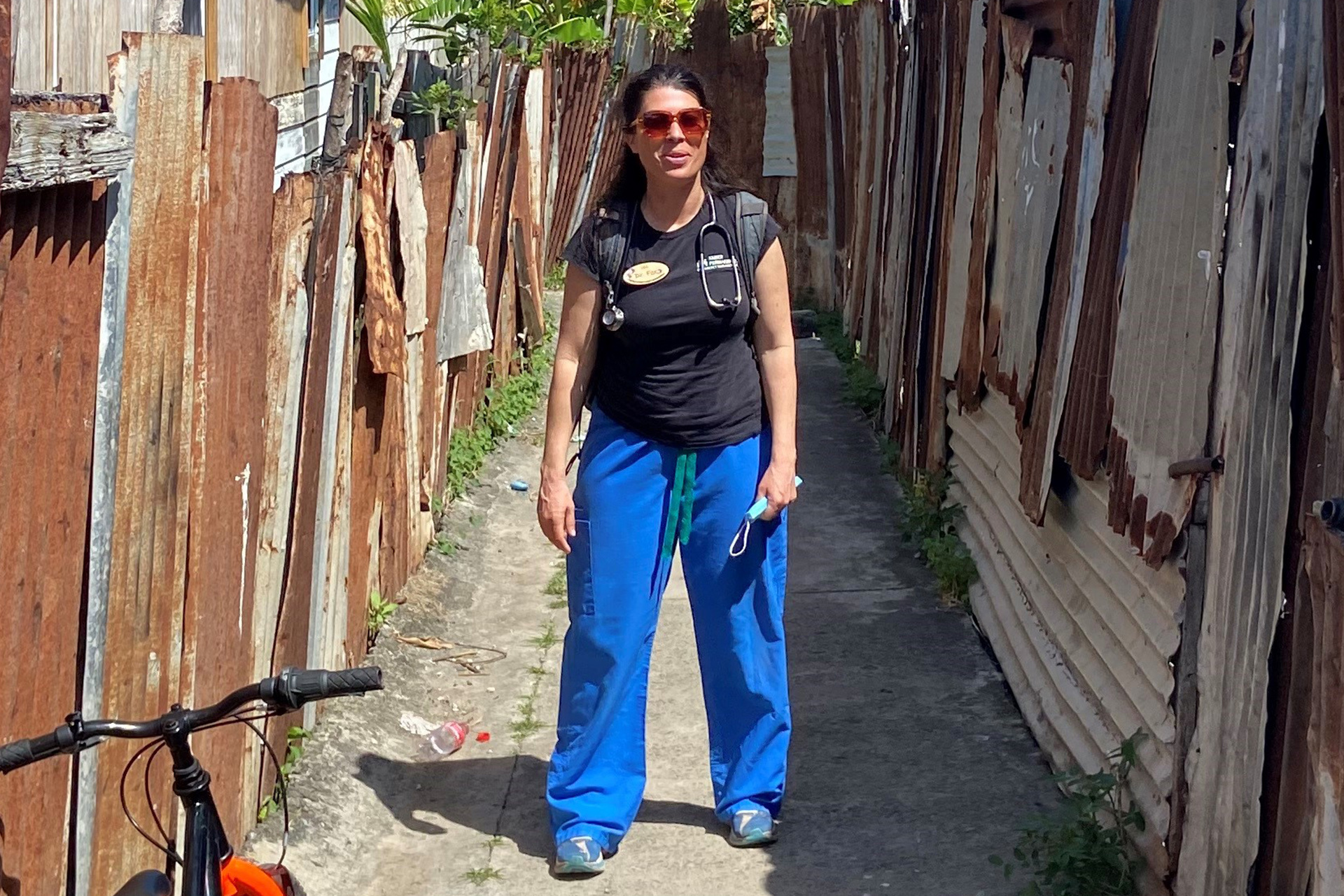Two Kaiser Permanente therapists volunteer their time to help asylum-seeking families near the U.S.-Mexico border. Pictured, left to right, therapists Alicia Cruz and Christin Mullen.
The bus station was packed full of dazed and exhausted families, some carrying babies while others only had the clothes on their backs. Through a fog of confusion and anxiety, this was the first experience outside detention for hundreds of asylum-seeking families entering the United States from Mexico each day.
“It felt very intense and emotional to be around so many traumatized people, but I am grateful to have been there,” said Christin Mullen, MFT, who described the recent scene.
Mullen is 1 of 2 marriage and family therapists at the Kaiser Permanente San Francisco Medical Center who journeyed in January to the bus station packed with migrants in San Antonio, Texas. The therapists’ volunteer outreach efforts are spearheaded by her colleague, Alicia Cruz, MFT. Cruz has travelled to San Antonio 3 times, twice on her own. After first learning of the experiences these families face, she was compelled to reach out.
A Therapist Takes Action
“Hearing about the children being separated from their parents and knowing about the trauma and psychological impact that they would have on them pushed me into action,” said Cruz. “I provide them with a positive interaction with a mental health provider right at the onset of their new life in the U.S. My hope is that it will make them more likely to seek support from a mental health provider once they reach their destination.”
Asylum-seeking families are dropped off at the bus station by immigration authorities. From there the migrants will continue their journey to meet up with family or friends in other parts of the country. Many of them have travelled for weeks, making their way north from Central America, before entering the initial asylum processes.
Cruz and Mullen provide families with lists of mental health resources and tell them how to look for the warning signs of trauma. The therapists ask the migrants to talk about what they’ve been through, paying special attention to the children.
“The families I’ve spoken with do not want to be seeking asylum,” said Mullen. “They are forced to leave their homes because of gang violence or other dire circumstances.”
“I have seen in my work at Kaiser Permanente the long-term impact of trauma. Untreated trauma can lead to substance abuse, domestic violence, suicide, mental illness, and the list goes on,” said Cruz. “I know what will happen if these families do not get the support they need.”
“Trauma causes us to develop negative beliefs about ourselves and about the world around us,” added Mullen. “We are trying to give these migrant families opportunities for feeling safe, understood, and connected.”
A River Walk
The therapists’ trips are self-funded and both use their vacation days to travel. They also get help from their Kaiser Permanente colleagues and others who donate frequent flier miles, money for travel expenses, or toys for the children.

“Hopefully, some of the children had some positive brain circuitry experiences with us, like doing art, playing games, or receiving fun toys for their long journeys ahead,” said Mullen.
Cruz sometimes walks with families along a river by the bus station, as they many times must wait several hours for their bus. It’s there that she sees the power of resilience and the human spirit.
“During the walk you can see a shift in their demeanor right away,” said Cruz. “I hear laughter and stories and oohs and aahs as they explore their new surroundings. This is my favorite part of my experience because I get to witness a beautiful side to these families.”
The therapists are returning to volunteer at the bus station in April and August. Interested in learning more or helping? Contact them at Alicia.Cruz-Hunt@kp.org or Christin.M.Mullen@kp.org.





This Post Has 5 Comments
Amazing humanitarians. I commend them for their service to the horrific immigration crisis.
Great job. I am an RN in the Fresno area and would love to assist in any way possible. If there are any others who would like to assist, we should connect. Christin and Alicia, I respect your commitment to your fellow man, woman, and child.
Alicia is planning to go again in August. She needs others who are Spanish speaking and trained mental health professionals to accompany her. She will help secure funding for the trip. Contact her directly.
Thank you for your compassion, for your work. This is reassuring to those of us who are appalled and saddened by the current immigration crisis.
Hope you are all practicing good self-care, as you provide the means and tools for these people to do the same, as they move on to their new lives here.
Great Job!!!! Love to read about things like this.